The Breitling Navitimer has a long and storied history dating back to around 70 years by name, but even further back in function development. Breitling was always known for their chronographs having pioneered both the 2 o’clock pusher and 4 o’clock pusher placement for its chronograph function, which are now standard. In addition to mechanical movement advancements, Breitling also developed a simple but useful logarithmic slide rule bezel in the early 1940s. The company had created the chronograph for mathematicians, also known as the Chronomat.
The Chronomat & Birth of the Navitimer
The Breitling Chronomat was noticed by the Airline Owners and Pilots Association (AOPA), and the organization was looking to create some merchandise that its members could purchase. So in 1952, the AOPA approached Breitling about creating an AOPA-branded watch for them.
Back then, the E6B flight computer was a useful tool that helped pilots perform flight calculations on the fly; using the logarithmic slide rule “computer,” pilots could estimate their updated time of arrival, gasoline consumption, ground speeds, and more. So Breitling took this functional navigation tool and combined it with its chronograph timer. The watchmaker even combined the words “navigation” and “timer” to name the now iconic Breitling “Navitimer.” It’s estimated that the first small production batch was released in 1954, bearing only the AOPA logo on the dial with no Breitling branding at all. It was an instant hit.
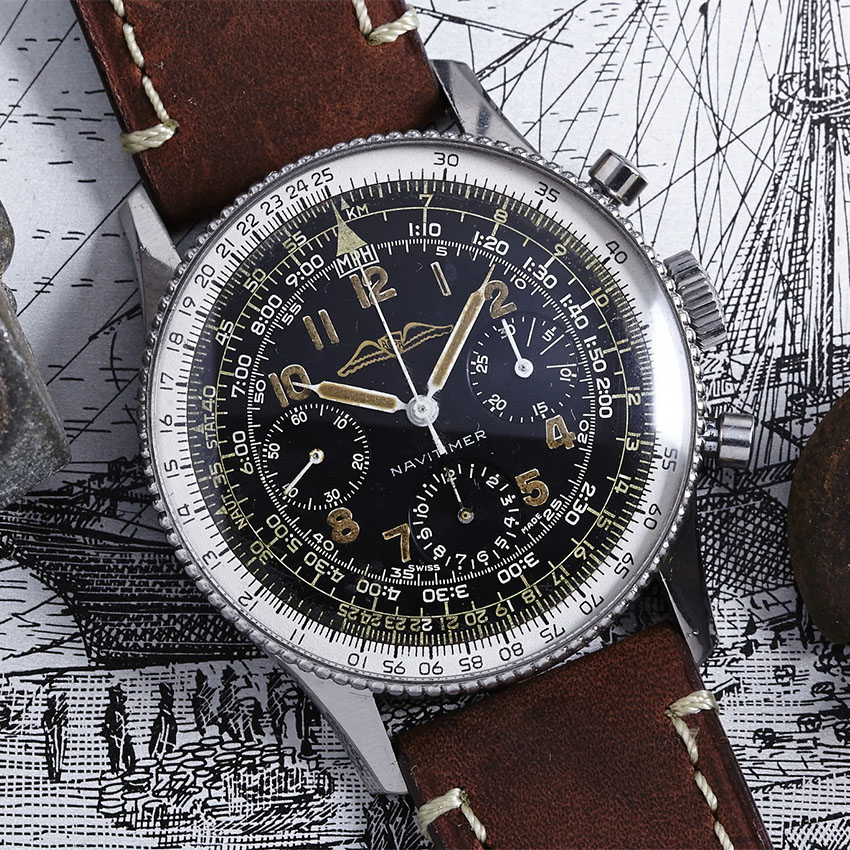
Image: 1954 Breitling Navitimer AOPA
The first batch had a 40 mm diameter, was 11.25 mm in height, and didn’t even have a reference number yet. But Breitling noticed the success of the design, and soon released a Breitling branded dial version as well.
This first design, introduced to the public in 1956, was called reference 806. The early versions came with a Valjoux 72 movement but were later swapped for Caliber Venus 178 for mass production. Venus 178 was the standard movement used in Breitling chronographs in larger production volumes at that time. The rice bead design on the edge of the bezel also changed in the early years, with the size of the beads getting slightly larger after 1956. There were other slight refinements in the early years as well, such as the shape of the lugs and Breitling continuously evolved the logo over the following years. But the success of the overall design was cemented by the fact that pilots all over the world were actively using the Navitimer during their travels.
First Breitling In Space
In 1961, astronaut Scott Carpenter asked Breitling to create a modified Navitimer for his upcoming spaceflight. He requested 24-hour time functionality on the dial since day and night don’t have much meaning in space while orbiting Earth. He also asked that the tachymeter be removed since not only did he not require one but it would also free up some dial space. Willy Breitling, the then-owner of Breitling obliged willingly because of his love of space.
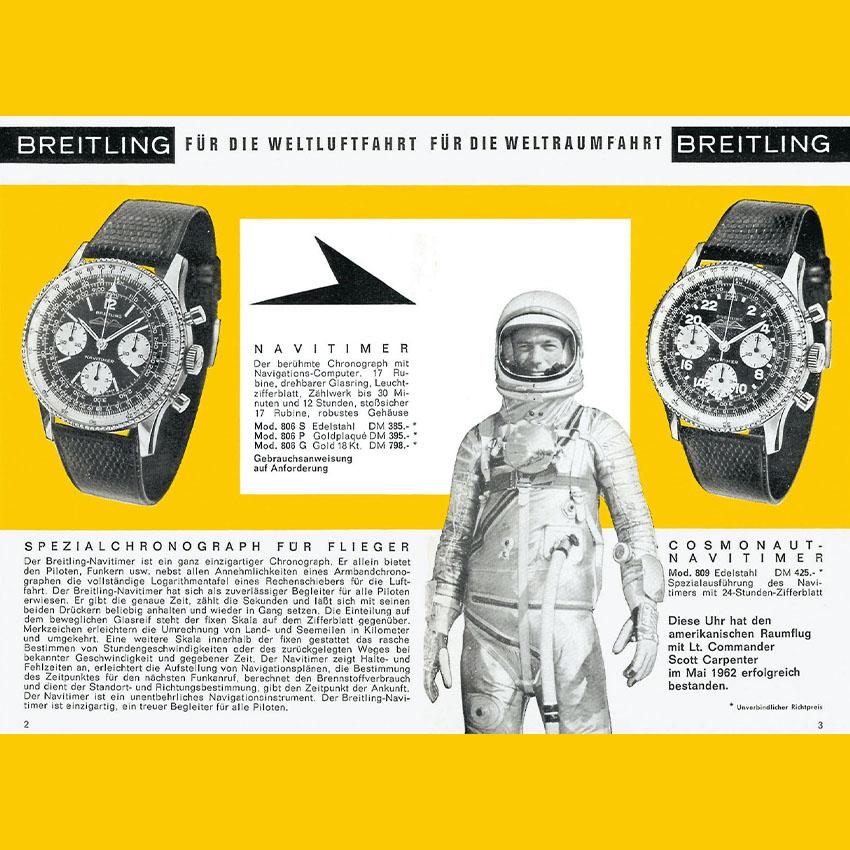
Image: 1962 Breitling Navitimer Cosmonaute Promo w/ Scott Carpenter
The Navitimer Cosmonaute was born and delivered to Scott Carpenter five days before his mission and it became the first Swiss wristwatch in space, accompanying the astronaut on the 1962 Mercury-Atlas 7 spaceflight. Unfortunately, water intrusion damaged the watch as the astronaut was wading in the Atlantic Ocean for over an hour, waiting to be picked up after arriving back on Earth. That original watch, damaged and untouched, is still in Breitling’s possession.
Further iterations to the Navitimer design came in the mid-1960s. For instance, contrasting sub-dials in white were introduced in 1963 and the bezel evolved from “beaded” to “serrated shortly after.
Evolution of the Navitimer
The appeal of the Navitimer went beyond pilots; famed jazz musician Miles Davis wore one, as did racecar driver Jo Siffert and James Bond in the 1965 movie ‘Thunderball’.
In 1969, reference 1806 was released as one of the first automatic chronographs released to the public. This release also introduced a waterproof rotating bezel and a 48mm case diameter—well in advance of the large watch trend that would arrive a few decades later. An equivalent hand-wound Navitimer also was released as reference 816.
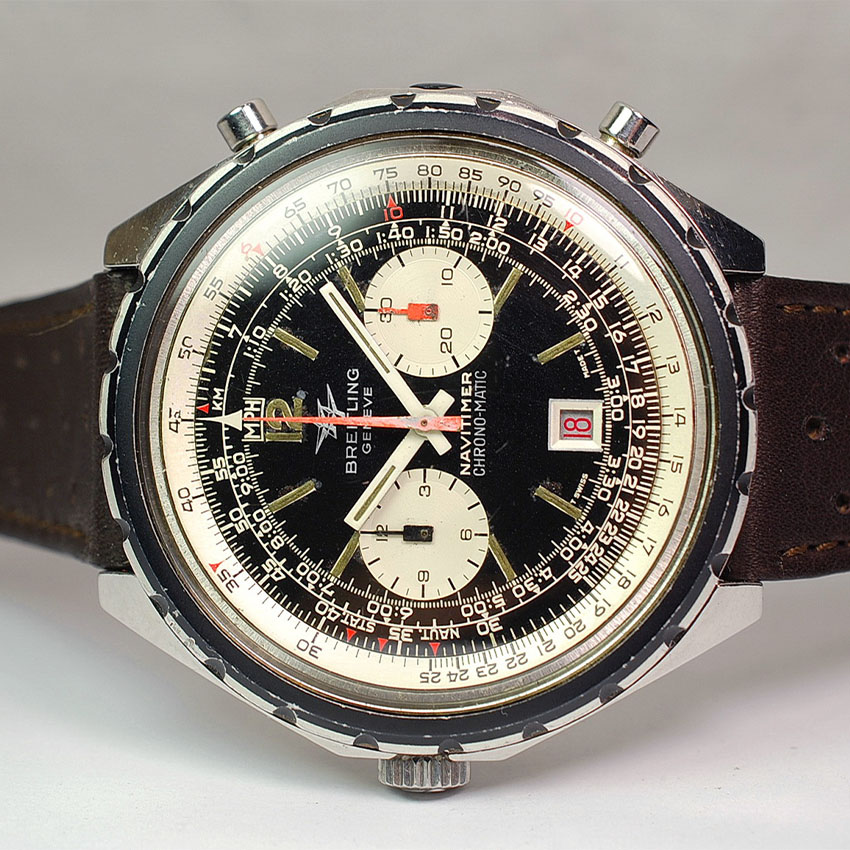
Image: 1969 Breitling Navitimer Ref. 1806
The Navitimer Reference 8806 was launched in 1973, which took the automatic chronograph, slimmed it back down to 41mm, and added a date function at the 6 o’clock position. A Navitimer with a date function had already come out in reference 7806 the year prior, although with a hand-wound movement.
Unfortunately, the quartz crisis hit Breitling hard in the 1970s. Attempts to keep up with the battery-powered and quartz-regulated Japanese watches came in the form of the introduction of an LED display Navitimer in 1976 and then an LCD version in 1977.
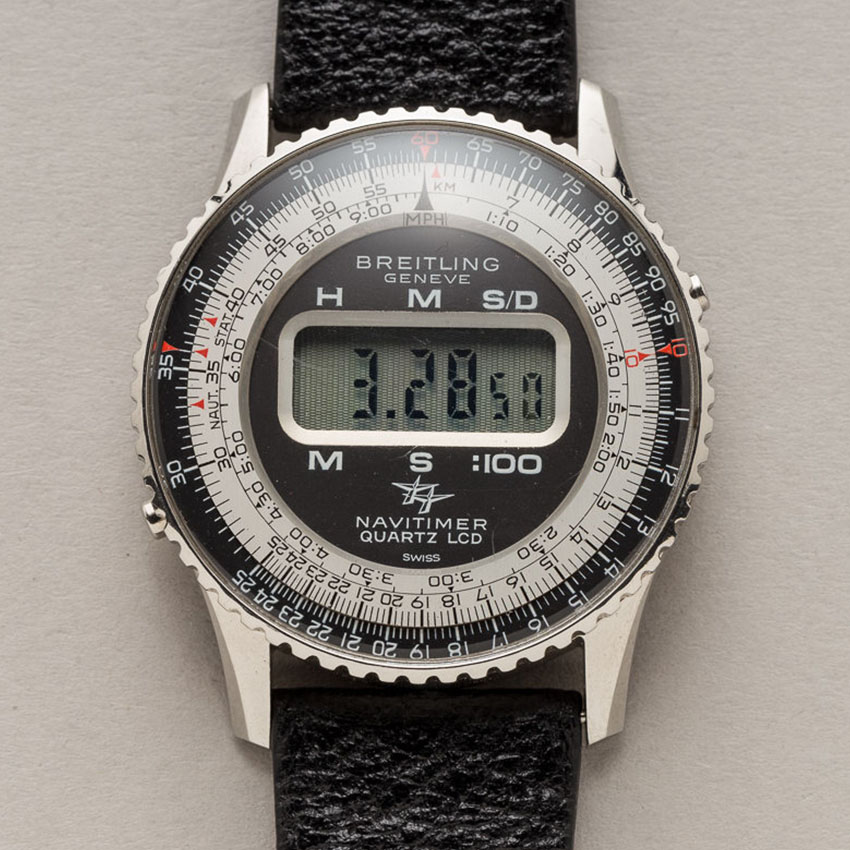
Image: 1977 Breitling Navitimer Ref. 9406 w/ LCD Display
Yet, the brand eventually went out of business, selling leftover components and the rights to the Breitling name. Fun fact: the Sinn 903 is considered a descendant of the Navitimer because Sinn purchased the rights to use the layouts of the Navitimer references 806 and 809. Ernest Schneider purchased Breitling in 1979 and ushered the brand into a new era.
Breitling Navitimer’s Modern Era
Throughout the 1980s and 1990s, new Navitimer models were re-released to the world with various developments. For example, smaller cases and various dial colors became available in 1992. The following year, the script B counterweight was added to the chronograph seconds hand. In 1995, a split-second chronograph version of the Navitimer was released in white gold, rose gold, and platinum.

Image: 1995 Breitling Navitimer Airborne Ref. A33030
Finally, in 2009 the Navitimer came equipped with Breitling’s first in-house movement, the B01. Today, there is a large variety of Navitimer variants available for the consumer, ranging from large to small, restrained to flashy, robust materials to precious metal. Some versions have even dropped the chronograph function entirely, keeping only the iconic look of the slide rule bezel. In 2019, the reference 806 1959 re-edition was released—harkening back to the original 806—with great success.
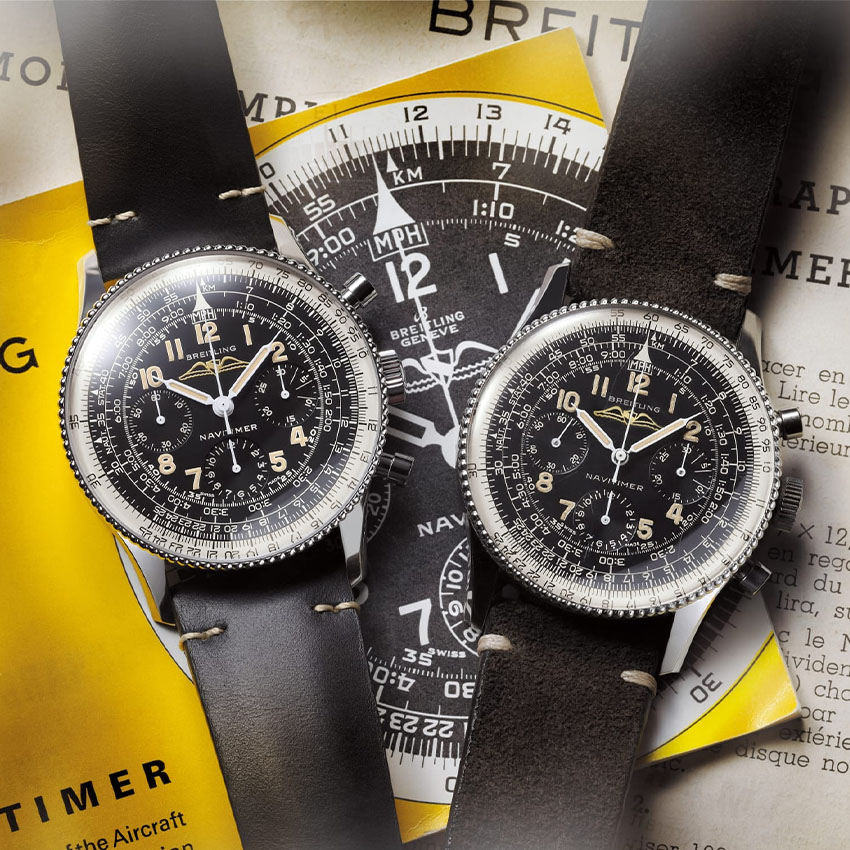
Image: 2019 Breitling Navitimer Ref. 806 1959 Re-Edition (Left) & Original Navitimer Ref. 806 (Right)
The Navitimer has had quite the history and if it continues to evolve with the times, it will have a solid future as a fan-favorite pilot’s watch.
Although today’s pilots are more likely to wear an Apple Watch than a mechanical watch (if they wear a watch at all), it’s nice to remember that the Navitimer was the smartwatch of the skies during its heyday as the aviator’s tool watch.


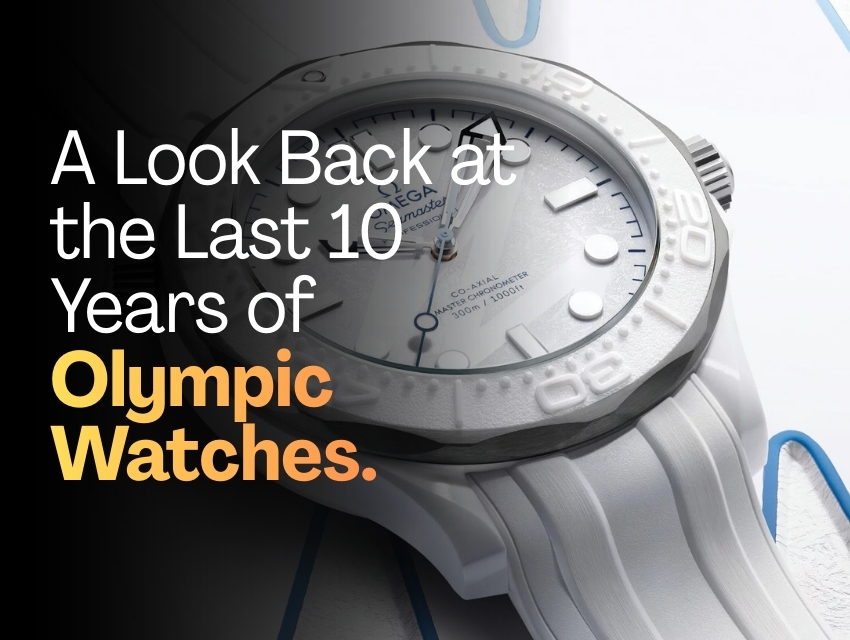
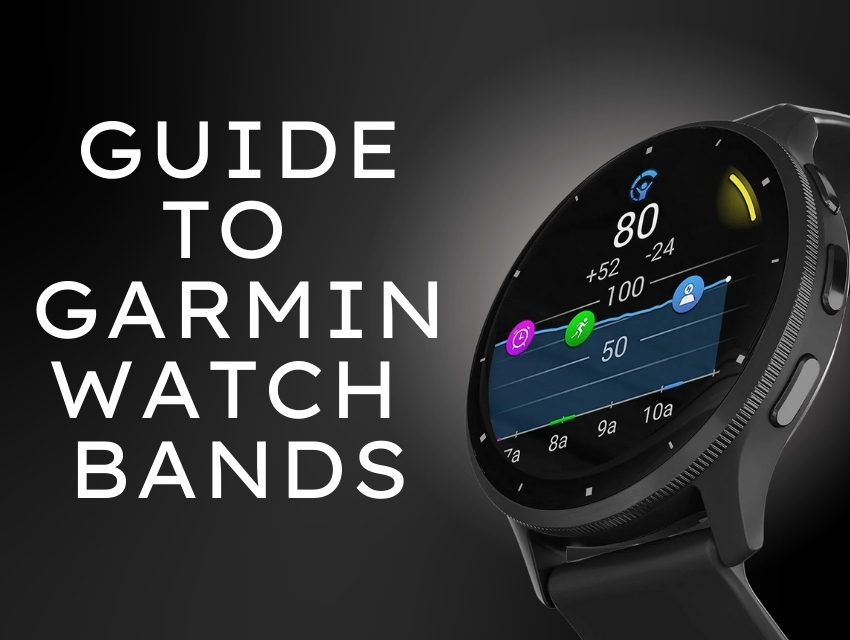
Comments
This article is rather incomplete. It fails to mention Ollech & Wajsand how they obtained the tooling and parts to the Navitimer from Breitling.
It also mentions that Scott Carpenter asked that the tachymeter be removed since not only did he not require one but it would also free up some dial space, but the Navitimer did not have a tachymeter.
In the early sixties my uncle ,a pilot , wore a Breitling watch.
In my earlies 20’s then, I was very impressed!
I own a Jaeger-LeCoutre by
Strapsco missed the opportunity here to cover the straps that Navitimers came with originally and what it offers in that regard. Early on one can see there were lizard skin Straps and more recently I think a black leather with white stitching is popular.